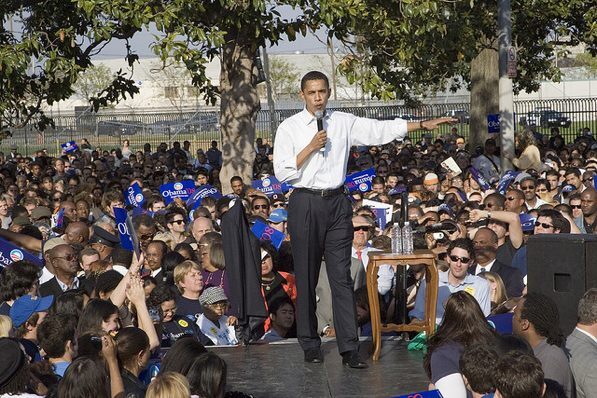Born Yesterday

So President Obama has finally done it. Either out of personal exasperation or political calculation--undoubtedly both--our commander-in-chief has taken the "birther" matter into his own hands to prove he was born in the U.S. Yes, Obama took time out of his terribly busy schedule to dispatch a lawyer to Hawaii to get that long-form certificate that technically should lay the whole Obama non-citizen conspiracy theory to rest (it won't; more on that in a minute). Appropriately, he used his birth-certificate press conference to flay the press and admonish certain segments of the American public for buying into the whole crazy sideshow that he's repeatedly described as a "distraction" to solving the country's real problems, like unemployment, energy development, insufficient health insurance, recession--that sort of thing.
Obama is right, of course. But it's the kind of gross understatement of the problem that's become typical for him. I know that this particular problem leaves him no choice but to understate or talk in a kind of code--how can he really say what he likely feels, that much of this birther buy-in is driven by ancient racist sentiments about black people that has much less to do with their citizenship and more to do with their legitimacy as representatives of American values and the American way of life? That's a more subtle issue that's been hidden by all the noise generated about constitutionality and exactly where Obama was born. But the persistent suspicion that he was born in Kenya is really just a metaphor for the general, undying suspicion that black people, however American they are, are really all latent Africans who (justifiably?) harbor generations of resentment towards "real" Americans that they carefully conceal until the right moment when they can visit that resentment upon the country--like getting elected to the White House. Be very afraid.
I was at a very nice party recently, one that was almost entirely attended by white people, when my own legitimacy was suddenly called into question. A man I'd just been introduced to asked me where I was from. L.A., I answered, South Central, but my family is from Louisiana. It's what I always say because it's true. The next series of questions was a racially tinged interrogation: Do you know voodoo? Where's South Central? What part? Who lives there? What do you write about? Was the last thing you wrote about any good? I'd like to go somewhere exotic. And so forth.
I'm very well-versed in racial antagonism, but I have to admit, I was caught off guard. Why? Because despite what I knew, I didn't want it to be so; I wanted to be accepted at face value, and it wasn't happening. And it happened not because I wasn't born here, but because I was. For this man, Kenya would have been the answer that would have put him at ease.
Journalist and op-ed columnist Erin Aubry Kaplan's first-person accounts of politics and identity in Los Angeles, with an eye towards the city's African American community, appear every Thursday at 2 p.m. on KCET's SoCal Focus blog.
The photo used on this post is by Flickr user Barack Obama. It was used under a Creative Commons License.


